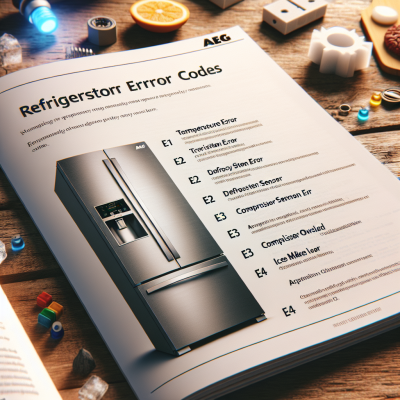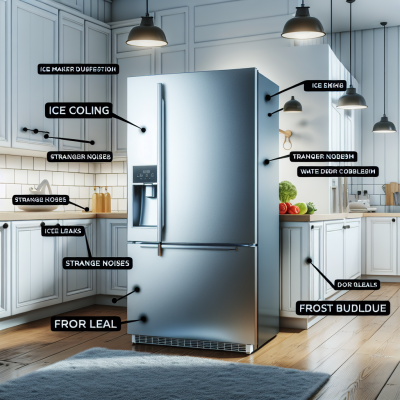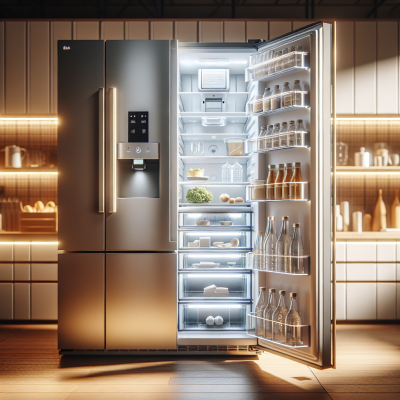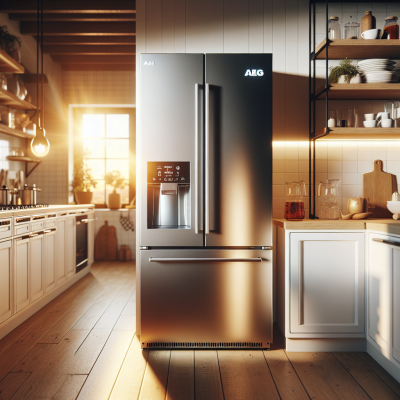Fast & Reliable Bosch Refrigerator Repairs - Call Now! |
Repair
When to Call a Professional
Understanding when to call a professional is crucial for maintaining your Bosch refrigerator's longevity and efficiency. While many issues can be rectified on your own, some problems require expert intervention. Consider consulting a professional if:
-
Electrical Issues: If there are frequent electrical surges or the refrigerator trips circuit breakers, it could indicate complex electrical problems that need professional handling to avoid safety hazards.
-
Refrigerant Leaks: Unusual hissing sounds or oil stains may indicate a refrigerant leak. This issue requires certified technicians equipped with the necessary tools and knowledge to handle refrigerants safely.
-
Compressor Problems: If your refrigerator isn't cooling as expected and DIY troubleshooting doesn't resolve the issue, the compressor might need inspection or replacement by a qualified professional.
-
Severe Frost Build-Up: While minor frost can be managed, severe accumulation could signal deeper issues with defrost systems or seals, necessitating professional assessment.
-
Internal Component Failures: Any signs of internal component failure, such as inconsistent temperature control, suggest it's time for expert diagnostic tools and techniques.
DIY Repairs
Owning a Bosch refrigerator means having access to a range of manageable DIY repairs that can save time and money.
Replacing the Water Filter
-
Locate the Filter: Generally found in the refrigerator's upper right corner or bottom grille.
-
Remove the Old Filter: Twist the filter counterclockwise or push the release button, depending on the model.
-
Install the New Filter: Insert the new filter and twist clockwise until it locks. Run water through the dispenser for a few minutes to purge air and contaminants.
Adjusting Door Alignment
-
Inspect the Hinges: Check for visible misalignment by comparing door alignment to the refrigerator body.
-
Tighten Bolts: If needed, use a socket wrench to adjust the hinge bolts, ensuring even alignment and a proper seal.
-
Test the Door Seal: Close the door to check if it seals properly; adjust further if necessary.
Fixing a Clogged Defrost Drain
-
Locate the Drain: Usually at the back of the freezer compartment.
-
Unclog the Drain: Use a warm water and baking soda solution to pour down the drain gently, dislodging any blockages.
-
Inspect and Clean: Check the drain pan and clean if necessary to prevent future clogs.
Replacing a Light Bulb
-
Remove the Old Bulb: Turn off the refrigerator and locate the bulb cover, usually on the ceiling or side. Twist the bulb counterclockwise to remove.
-
Install the New Bulb: Insert a new bulb of the same type and wattage, turning clockwise to secure it.
-
Check Functionality: Turn the refrigerator back on to ensure the new bulb works correctly.
Safety Precautions During Repairs
-
Unplug the Refrigerator: Always disconnect from the power supply before attempting any repair to prevent electric shock.
-
Use Proper Tools: Ensure you have the correct tools for each repair to avoid damage to components or injury.
-
Follow Manufacturer Guidelines: Adhere to specific Bosch guidelines for parts replacement and troubleshooting methods to maintain warranty and safety standards.
-
Wear Protective Gear: Use gloves and safety goggles when handling sharp components or electrical connections.
Understanding when to tackle an issue yourself versus when to call in a professional ensures your Bosch refrigerator runs smoothly and safely throughout its lifespan.




